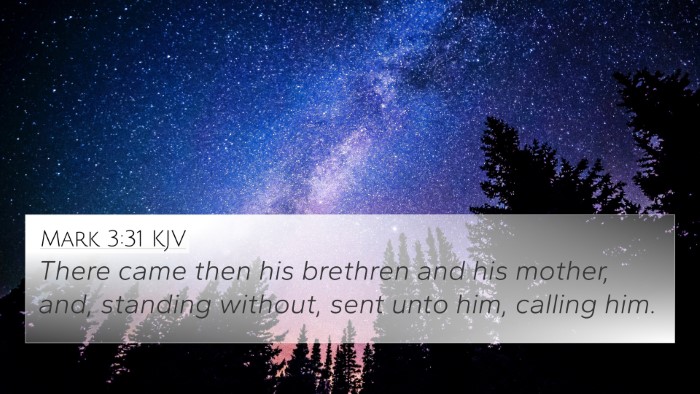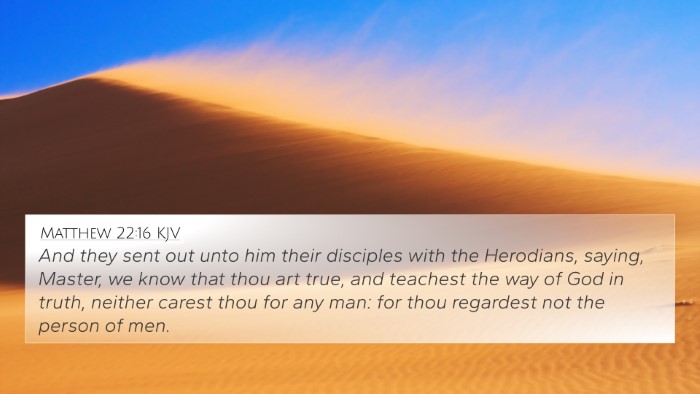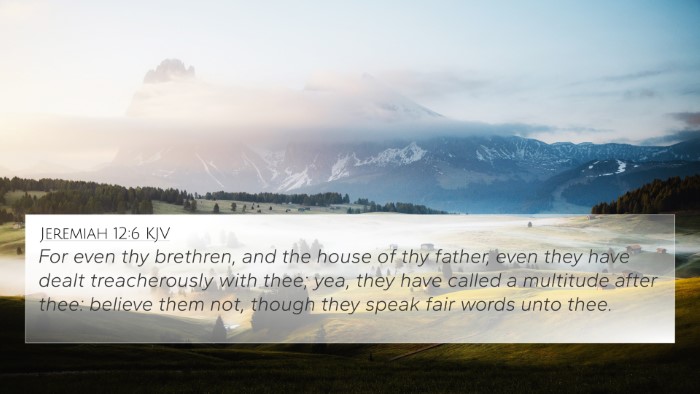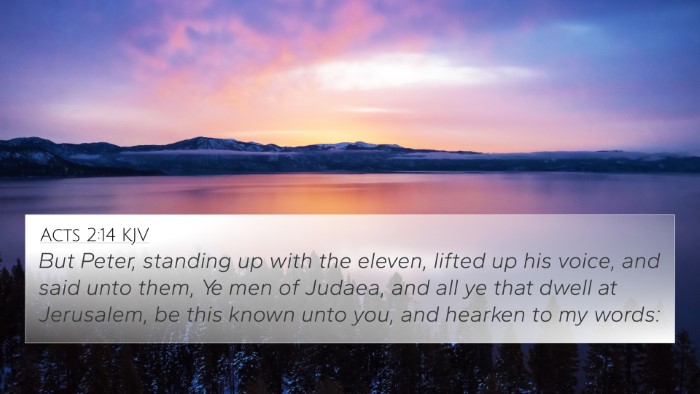Understanding John 7:3
John 7:3: "His brothers therefore said to him, 'Depart from here and go into Judea, that your disciples also may see the works that you are doing.'" This verse captures a pivotal moment where Jesus' brothers urge Him to go to Judea, showcasing their skepticism about His ministry and the need for public acknowledgment.
Contextual Background
The passages around John 7:3 help us understand the social and familial dynamics at play. Jesus is in Galilee while the Feast of Tabernacles is approaching. His brothers, likely referring to His earthly siblings, challenge Him to demonstrate His miraculous signs publicly.
Commentary Insights
According to public domain commentaries, several key themes and interpretations arise from this verse:
-
Matthew Henry:
Henry suggests that the brothers of Jesus display a lack of faith and understanding. Their request signifies skepticism, as they do not fully grasp the implications of Jesus' identity and mission.
-
Albert Barnes:
Barnes notes that their insistence for Jesus to go to Judea could reflect familial pressure and the expectation of public validation for His works. He emphasizes that they think Jesus’ miracles would gain more followers if performed in Judea.
-
Adam Clarke:
Clarke highlights the irony that the brothers of Jesus encourage Him to pursue worldly recognition while they do not believe in Him. Their request underscores the challenge of faith despite witnessing miracles.
Thematic Connections and Cross-References
When exploring John 7:3, several Bible verses can provide additional insight and thematic connections:
- Matthew 12:46-50: Jesus redefines family in terms of spiritual kinship.
- Mark 3:21: Jesus' family thinks He is out of His mind, reflecting their misunderstanding.
- John 6:66-69: A discussion on discipleship and belief in the true identity of Jesus—contrast between belief and skepticism.
- John 10:24: A similar questioning of Jesus’ identity occurs when He is asked to reveal Himself clearly.
- Luke 4:22: The initial rejection of Jesus’ ministry by His own people highlights the struggles of receiving Him.
- James 1:5: Seeking wisdom, which contrasts with the brothers' lack of understanding.
- Acts 1:14: After the resurrection, Jesus' brothers become believers, showcasing the transformation from skepticism to faith.
Relevance and Application
The inquiry by Jesus' brothers into His purpose prompts deeper contemplation on the nature of belief and the challenges faced by followers. Key takeaways from John 7:3 include:
- Faith vs. Skepticism: The tension between belief and skepticism is illustrated in familial interactions with Jesus.
- Public Ministry: The importance of public witness in faith practice, though not merely for validation.
- Understanding the Mission: Recognizing Jesus’ broader mission beyond mere miracles or public acclaim.
Conclusion
John 7:3 serves as a reflective verse, revealing the complexities of family, faith, and the public ministry of Jesus. Through cross-referencing the Bible, readers can identify interconnected themes and deepen their understanding of both the passage itself and the broader narrative of Christ’s life and mission.
Additional Tools for Study
For those looking to explore further, various Bible reference resources are available:
- Bible concordance
- Bible cross-reference guide
- Comprehensive Bible cross-reference materials
- Methods for cross-referencing Bible texts in study
- Guides on identifying connections between verses
Through these tools, believers and scholars alike can study the connections between Bible verses and engage deeply with the text. In conclusion, John 7:3 invites readers to move beyond surface-level understanding and encourages an exploration of the transformative nature of faith.













